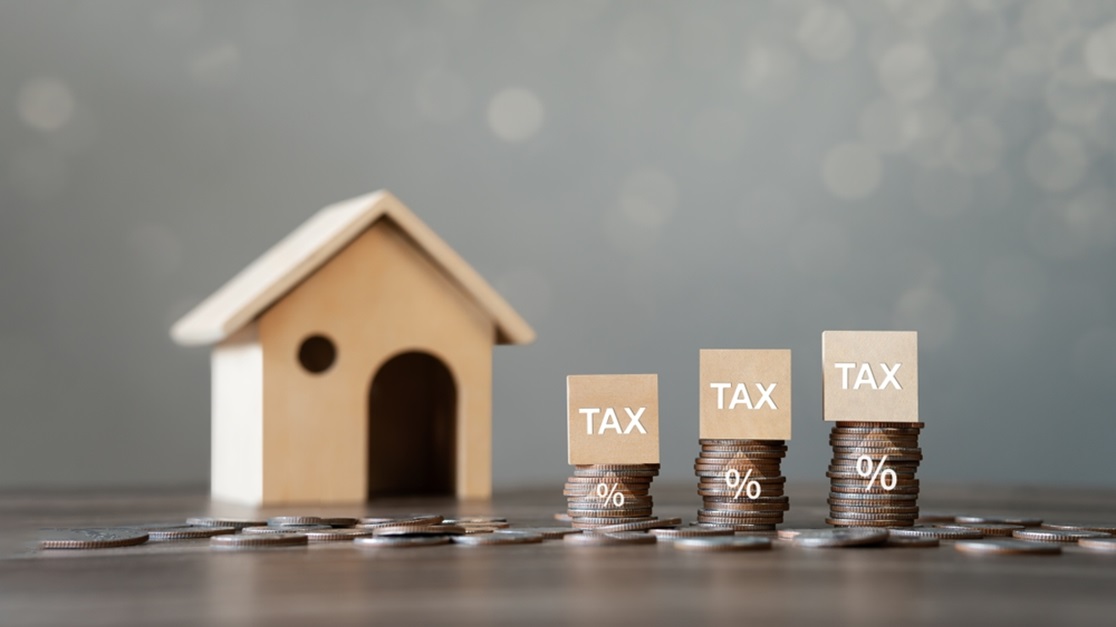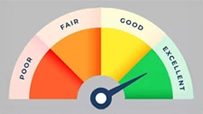Are You Eligible for Section 80EE or Section 80EEA Tax Benefits?
September 03, 2025

Imagine this: Ravi, a young IT professional in Bangalore, has just booked his dream home. While planning his finances, he hears about tax benefits under Section 80EE and Section 80EEA but is confused about which one applies to him. If you’re like Ravi, wondering whether you qualify for Section 80EE or Section 80EEA, you’re in the right place.
In this guide, we will help you understand the eligibility criteria, tax benefits, and key differences between these two sections, ensuring you make the most of your home loan tax deductions.
What is Section 80EE?
Section 80EE of the Income Tax Act, 1961, allows first-time homebuyers to claim an additional tax deduction of up to ₹50,000 on home loan interest payments.
Eligibility Criteria for Section 80EE
- First-time Homebuyer: The applicant should not own any other residential property at the time of loan sanction.
- Loan Sanction Period: The home loan should have been sanctioned between April 1, 2016, and March 31, 2017.
- Loan Amount Cap: The loan amount should not exceed ₹35 lakh.
- Property Value Limit: The total value of the house should not exceed ₹50 lakh.
- Loan Provider: The home loan must be availed from a financial institution or a housing finance company.
- Taxpayer Type: Only individuals can claim this benefit (not HUFs, companies, or firms).
What is Section 80EEA?
Section 80EEA provides a higher tax deduction of up to ₹1.5 lakh on home loan interest for first-time homebuyers purchasing an affordable house.
Eligibility Criteria for Section 80EEA
- First-time Homebuyer: The taxpayer must not own any other house at the time of loan sanction.
- Loan Sanction Period: The loan must be sanctioned between April 1, 2019, and March 31, 2022.
- Stamp Duty Value Limit: The property’s stamp duty value should not exceed ₹45 lakh.
- Loan Provider: The loan must be taken from a bank or housing finance company.
- Taxpayer Type: Only individuals can claim this deduction.
- Cannot Claim Section 80EE Simultaneously: If you qualify for 80EEA, you cannot claim benefits under 80EE.
Section 80EE Vs. Section 80EEA
| Criteria | Section 80EE | Section 80EEA |
| Maximum Deduction | ₹50,000 | ₹1.5 lakh |
| First-time Homebuyer Required? | Yes | Yes |
| Loan Sanction Period | FY 2016-17 | FY 2019-22 |
| Property Value Cap | ₹50 lakh | ₹45 lakh (Stamp Duty Value) |
| Loan Amount Cap | ₹35 lakh | No upper limit |
| Can be Claimed with Section 24(b)? | Yes | Yes |
| Can be Claimed Together? | No | No |
How to Claim Tax Deductions Under Section 80EE & 80EEA
- Check Eligibility – Ensure you meet all criteria for either 80EE or 80EEA.
- Get Your Loan Interest Certificate – Obtain an interest payment certificate from your lender.
- Declare in ITR – Mention the deduction amount in your Income Tax Return (ITR).
- Submit Proofs to Employer – If salaried, submit loan documents to your employer for TDS benefits.
- Self-Employed? – Keep loan statements handy for tax filing.
Final Thoughts
If you took a home loan between April 1, 2016 - March 31, 2017, and meet the eligibility criteria, you qualify for Section 80EE. However, if your loan was sanctioned between April 1, 2019 - March 31, 2022, and your property’s stamp duty value is ₹45 lakh or less, you can claim Section 80EEA.
Both deductions help first-time homebuyers reduce tax liability, but they cannot be claimed together. Make sure to choose the one applicable to you for maximum savings.
Buying a house has never been this easy! Avail Ujjivan SFB’s wide range of affordable home loan products and enjoy a hassle-free loan journey. From house purchase loan to plot loans and home improvement loans, we have it all! Alternatively, you can browse through Ujjivan SFB product suite - our wide range of financial products are designed to make your financial life better.
Disclaimer:
The contents herein are only for informational purposes and generic in nature. The content does not amount to an offer, invitation or solicitation of any kind to buy or sell, and are not intended to create any legal rights or obligations. This information is subject to updation, completion, amendment and verification without notice. The contents herein are also subject to other product-specific terms and conditions, as well as any applicable third-party terms and conditions, for which Ujjivan Small Finance Bank assumes no responsibility or liability.
Nothing contained herein is intended to constitute financial, investment, legal, tax, or any other professional advice or opinion. Please obtain professional advice before making investment or any other decisions. Any investment decisions that may be made by the you shall be at your own sole discretion, independent analysis and evaluation of the risks involved. The use of any information set out in this document is entirely at the user’s own risk. Ujjivan Small Finance Bank Limited makes no representation or warranty, express or implied, as to the accuracy and completeness for any information herein. The Bank disclaims any and all liability for any loss or damage (direct, indirect, consequential, or otherwise) incurred by you due to use of or due to investment, product application decisions made by you on the basis of the contents herein. While the information is prepared in good faith from sources deemed reliable (including public sources), the Bank disclaims any liability with respect to accuracy of information or any error or omission or any loss or damage incurred by anyone in reliance on the contents herein, in any manner whatsoever.
To know more about Ujjivan Small Finance Bank Products Visit:"https://www.ujjivansfb.in"
All intellectual property rights, including copyrights, trademarks, and other proprietary rights, pertaining to the content and materials displayed herein, belong
to Ujjivan Small Finance Bank Limited or its licensors. Unauthorised use or misuse of any intellectual property, or other content displayed herein is strictly prohibited and the same is not intended for distribution to, or use by, any person in any jurisdiction where such distribution or use would (by reason of that person’s nationality, residence or otherwise) be contrary to law or registration or would subject Ujjivan Small Finance Bank Limited or its affiliates to any licensing or registration requirements.
FAQs
1. Can I claim both Section 80EE and Section 80EEA together?
No, you can claim only one of these deductions based on your eligibility.
2. Is Section 80EE still valid in FY 2024-25?
No, it was applicable only for loans sanctioned in FY 2016-17.
3. Can I claim Section 80EEA if my property costs ₹50 lakh?
No, the stamp duty value must be ₹45 lakh or lower to qualify.
4. Can I claim deductions under Section 80EEA even if I live in a rented house?
Yes, there is no requirement to reside in the purchased house.
5. Can an NRI claim benefits under Section 80EE or 80EEA?
Yes, NRIs can claim deductions if they meet all eligibility criteria.
6. Is there an income limit to claim these deductions?
No, there is no specific income cap for either 80EE or 80EEA.
7. Can I claim these deductions on a joint home loan?
Yes, if both borrowers meet the eligibility criteria, they can claim separately.
8. What if my property has a stamp duty value of ₹46 lakh?
Unfortunately, you will not qualify under Section 80EEA as the limit is ₹45 lakh.
9. Can I claim this benefit for a resale property?
No, the property should be purchased from a developer.
10. Can I claim 80EEA if I already own a commercial property?
Yes, owning a commercial property does not impact eligibility.
Latest Blogs

Gold Loan LTV Ratio Explained (75% to 85%): What It Means for Borrowers
March 20, 2025
In June 2025, the Reserve Bank of India (RBI) introduced a significant relaxation for gold loan borrowers: the maximum Loan-to-Value (LTV) ratio for loans below ₹2.5 lakh was raised to 85%, up from the long-standing cap of 75%. Loans between ₹2.5 lakh and ₹5 lakh can now go up to 80%, while loans above ₹5 lakh continue under the 75% ceiling.

Good Debt vs Bad Debt: Learn the Difference
August 13, 2025
Every month, millions of Indians wait for the familiar debit alert, an EMI deducted from their account.

Got a Tax Refund? 5 Smart Ways to Put Your 2025 Refund to Work
August 13, 2025
For many taxpayers, there’s a unique sense of relief when a tax refund arrives.

Credit Score Not Improving? 5 Mistakes You Might Be Making
August 13, 2025
For most of us, a credit score feels like a silent judge sitting in the background of our financial lives.

Banking Jargon Decoded: 15 Key Terms You Should Know
May 13, 2025
Banking feels simple on the surface; deposit money, withdraw when needed, pay bills, or transfer funds.




